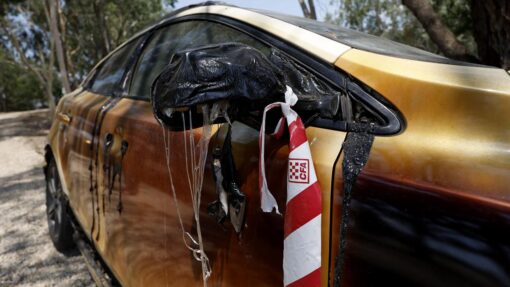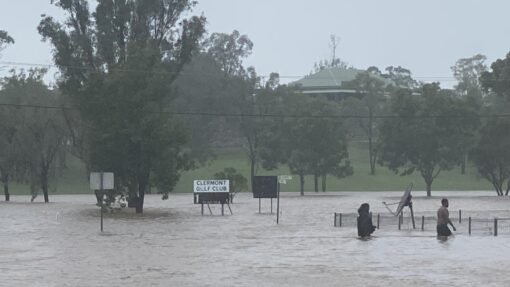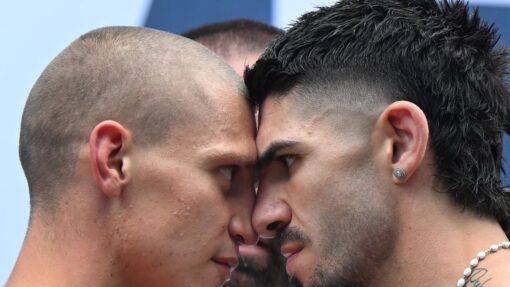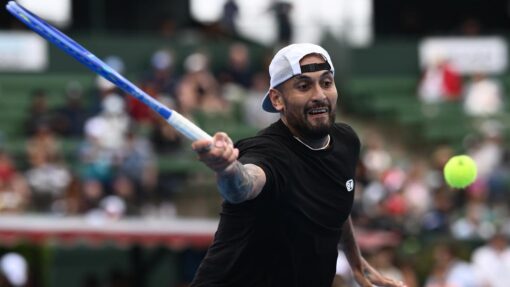‘Lonely’ female Pacific MPs meet in New Zealand
Ben McKay |
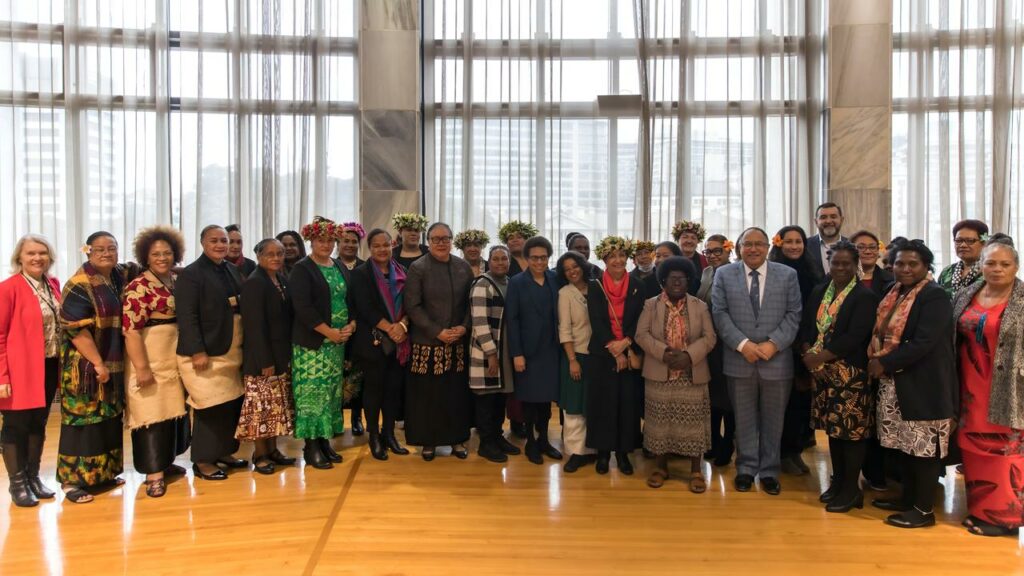
Asked to describe her experience as Vanuatu’s sole female MP, Gloria Julia King starts with just a few words.
“It’s so lonely. Very lonely,” she tells AAP.
Elected last year, Ms King was the first woman elected to the 52-seat parliament in 14 years.
Her experience is replicated, if not to the same degree, across the Pacific; a region which elects fewer female MPs than any other.
Kessy Sawang knows the feeling too.
Papua New Guinea had no women in its parliament – one of three countries without female representation – until she was elected last year, along with Rufina Peter.
“It is lonely. There’s only two of us. And she’s in opposition … and I’m in government,” Ms Sawang tells AAP.
The pair came together in Wellington this week, present among a historic gathering of elected Pacific women.
More than two dozen MPs from 12 Pacific nations, including soon-to-be independent Bougainville and the hosts New Zealand, held a ‘wananga’ (meaning a gathering of learning) designed to bridge gaps across the blue continent.
“I can see my own story in the light of the stories of other Pacific Island women parliamentarians has been really empowering and inspiring,” Ms Sawang said.
Ms Sawang said a chief driving force behind her parliamentary career was to make life better for women and girls in areas outside the 40 per cent that have access to clean water.
“In the district I come from, when a couple give birth to a baby girl, that girl carries water every day, for the rest of their lives. I consider this as slave work,” she said.
“I used to carry water every day. It’s the women and girls who carry water every day unless you provide a water system for them, so we need to institutionalise water hygiene and sanitation.”
Another is seeing benefits from mining projects reach the communities they impact.
“Over the last 15 to 20 years I’ve seen that we don’t benefit much out the resources projects, even though they make big statements that benefits will come to landowners,” she said.
“It’s a social injustice I’ve seen where our resources were taken but we haven’t really benefited … so that made me create a lobby group.
“I see myself as the person putting my foot in the door of parliament, and I want to keep the door open and inspire and help other women to come in so we can have a critical mass.”
Both Australia and New Zealand target much of its development assistance towards supporting women and girls.
That includes leadership programs and also grassroots campaigns that prevent gender-based violence.
Ms King said Vanuatuan women faced challenges both putting their hands up to be candidates, and gaining support from voters.
“Everything goes through the chief and the council and the leadership … you start talking about politics and they go, ‘that’s the men’s business’,” she said.
“The men (in parliament) keep to themselves and men talk to themselves.
“In some instances, if they were going to communicate with me, they actually speak to my husband. When confronted they say ‘it’s a cultural thing’, which, okay, I understand.
“But this is the national parliament and it is imperative they all know that I got here, square and fair. I probably got more votes than a lot of them.
“I have my right to be here and say what I want to say.”
Befitting the moment, Ms King has a background in football and has represented Vanuatu – just as her father and husband did – in the country’s No.1 sport.
“Women were always fighting for space, facilities, access to opportunities, funding. To be honest, it hasn’t gotten any better,” she said.
“But it gave me a voice and an opportunity to sit at the table and have have my say.”
Ms King took in a Matildas match at the Women’s World Cup in Brisbane earlier at the tournament, but missed the chance to stay for a quarter-final in New Zealand as she was called back home as her party leader, Prime Minister Ishmael Kalsakau, faced a no-confidence vote.
Two days in New Zealand’s capital was enough to forge links she believes will last.
“It’s amazing. It’s empowering. And I don’t feel so alone because I’ve got all these sisters from all across the Pacific,” she said.
“A lot of them know that I’m the only woman in parliament, so they kind of feel for me and it’s just nice.
“There’s a wealth of knowledge among us and and I do intend to make the most of it.”
AAP